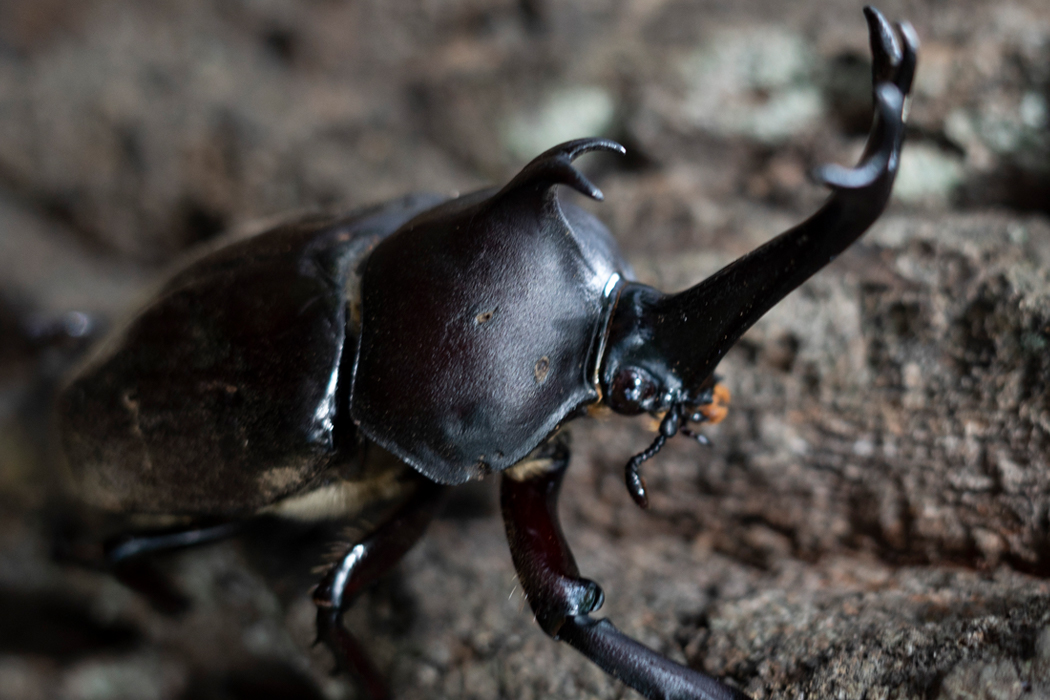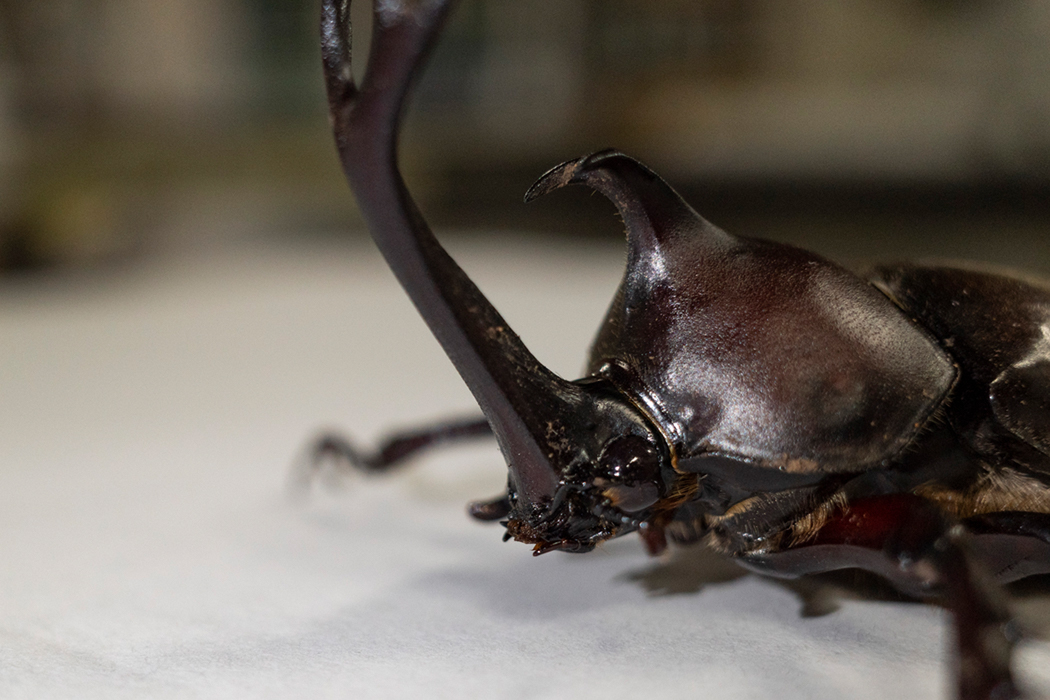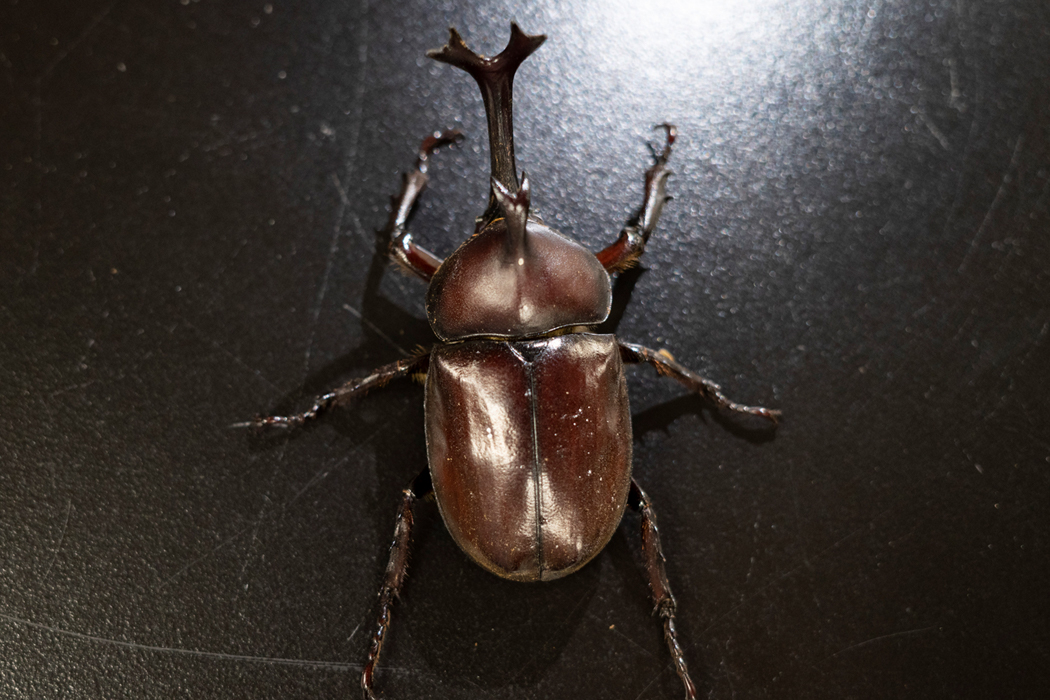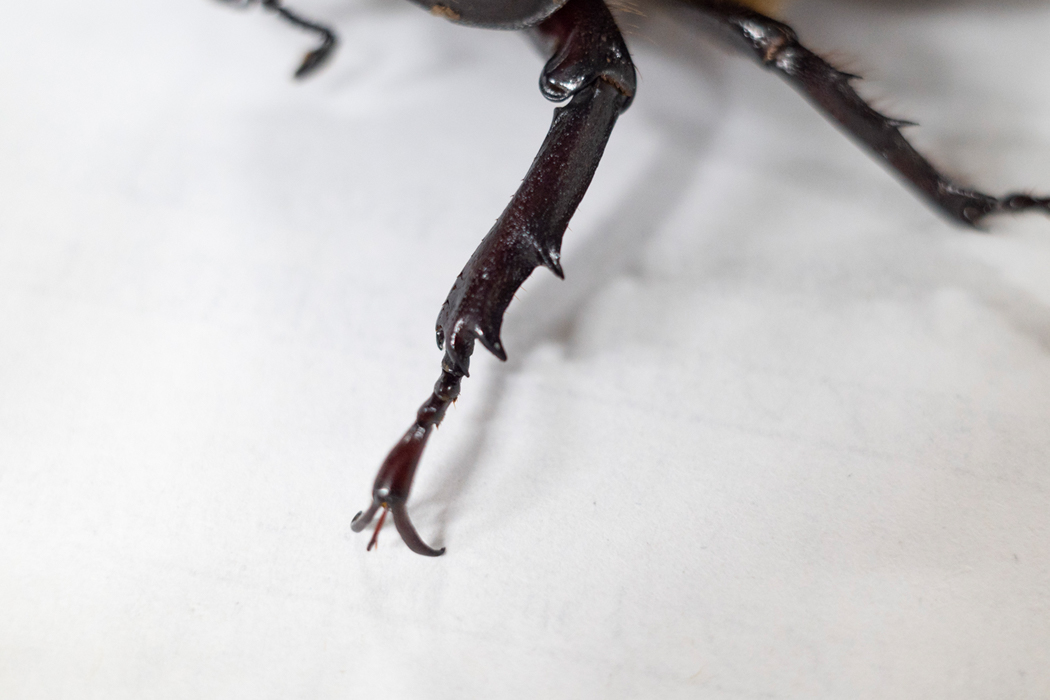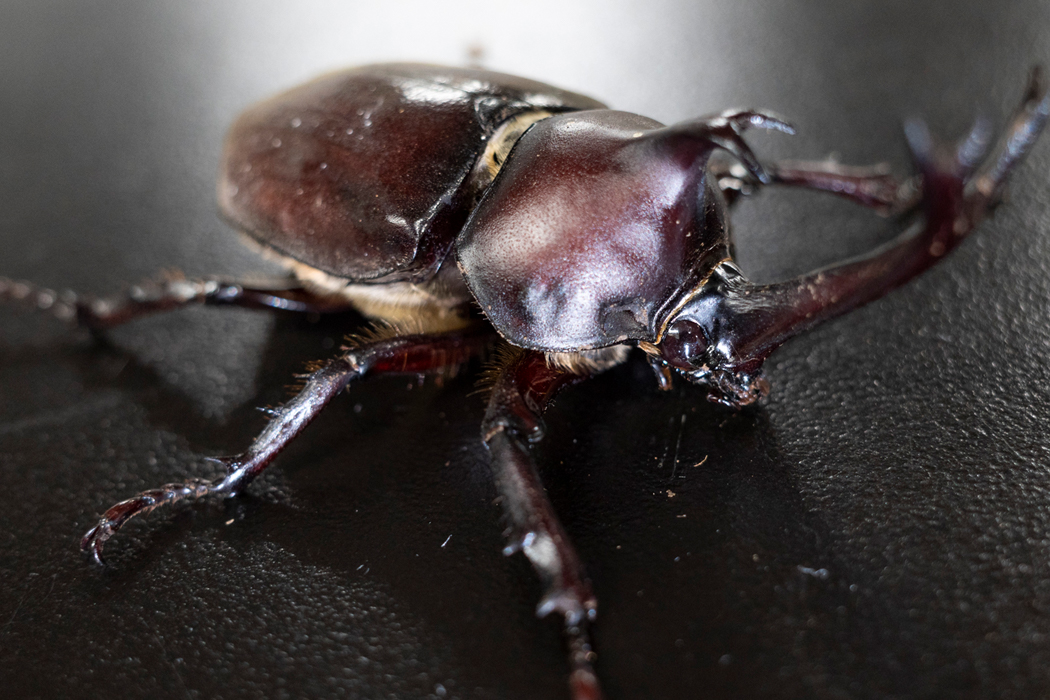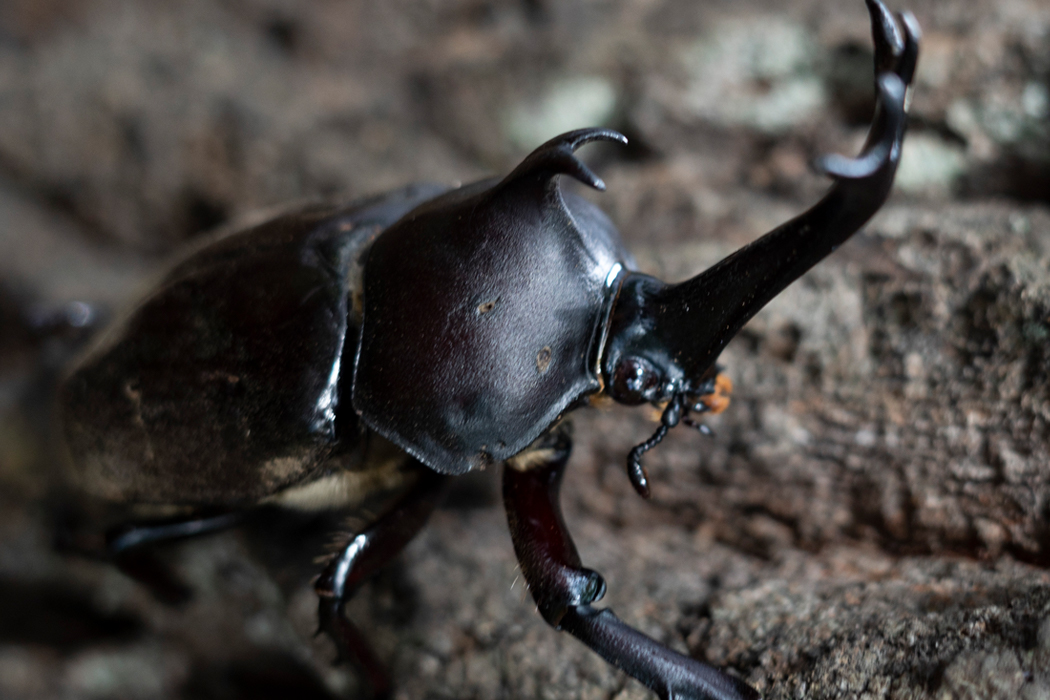
Japanese rhinoceros beetle
Throw away with great strength and big horns.
| Scientific name | Trypoxylus dichotomus |
| English name | Japanese rhinoceros beetle |
| Japanese name | 甲虫(兜虫) |
| Classification | Insecta |
| Classification details | Coleoptera Scarabaeidae |
| Full length | 30-55cm |
| Distribution | Distributed in Honshu, Shikoku and Kyushu. Also found in East Asia. |
Characteristics
An insect with large horns. It has a stocky brown body with strong legs. The tips of its legs are hooked so that it can easily be grabbed by trees.
Males have well-developed horns, two on the head and one on the chest. The two-pronged horns on the head are further divided into two. Females do not have horns. The proboscis is brush-like so that honey can be easily licked.
Abdominal wings are brown to reddish brown.
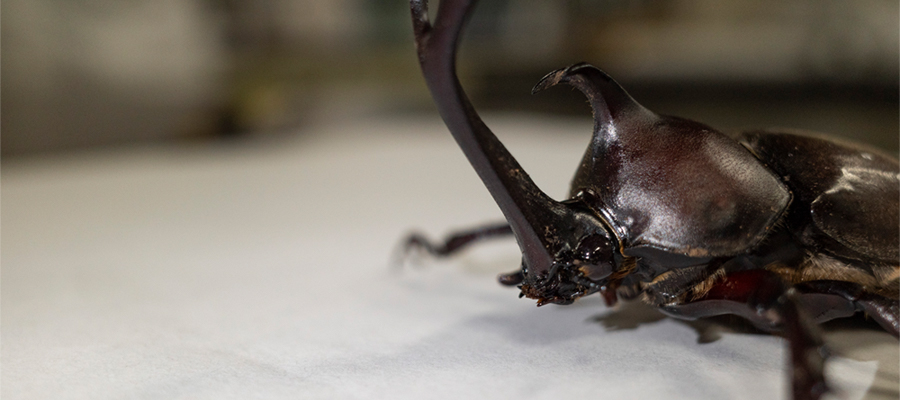
Ecology
Adults emerge in early summer. It is nocturnal and gathers in trees that produce sap. At that time, it uses its horns to fight other insects such as stag beetles and other beetles. During the day, it hides in the mulch at the base of the tree.
After mating, the adults die in September.
Habitat
Found at the base of a sawtooth oak tree in a thicket. It was a rather small male. I took him inside and observed him. A bifurcated structure was seen at the tip of the horn and the tip of the leg. Since the summer is over, I escaped to the forest after observing.
Video
The video of a Japanese rhinoceros beetle.
On the desk.
Pictures
Introducing a picture of Japanese rhinoceros beetle.

Picture book
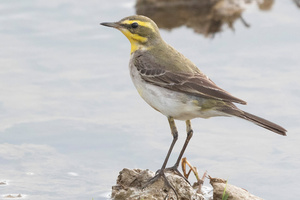
Yellow wagtail
Distinctive yellow eyebrows.......ead more.

Brown Dipper
Characterized by a sharp tail.......ead more.

Brown-eared Bulbul
Cries "hee yo hee yo".......ead more.

Clione
Swims with a pair of wing legs in front of the transparent body.......ead more.

Common Grass Yellow
Familiar butterfly with yellow wings.......ead more.
